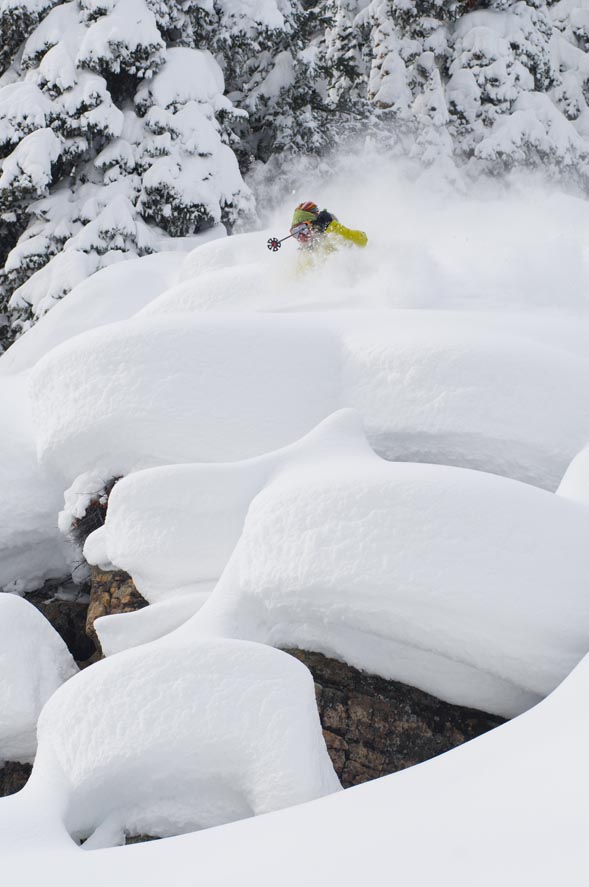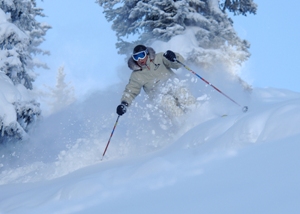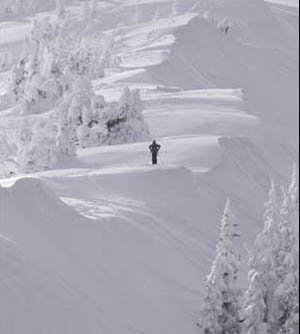
- Coming soon to a rest area near you: Yellowcake uranium, a low-risk form of hazmat
- Garfield County continues to debate resolution on DeGette's FRAC Act
- Can uranium mining, tourism and outdoor recreation coexist in Montrose County?
- Telluride residents rally against proposed uranium mill in Montrose County
- Heavy hitters Udall, Denver Water, USFS get behind Vail biomass power plant concept
- Natural gas drilling to keep moving closer to nuclear blast site near Rulison
- School of Mines professor says gas industry tried to get him fired for controversial comments
- Vail Valley Medical CEO Cassin resigns
- Polar exploration company Quark Expeditions signs on as major sponsor of Vail Valley Foundation
- Shaw Cancer Center in Edwards unveils new PET/CT scanner
- All Real Biz Articles
May 28, 2009 — Ron Lehr was chairman of the Colorado Public Utilities Commission (PUC) in the early 1990s when the Montrose-based Colorado Ute Electric Association went bankrupt because of what he deemed “a colossal blunder that put them out of business.”
Lehr, now an attorney for the renewable energy association Interwest Energy Alliance, said Colorado Ute built the Craig 3 coal-fired power plant in northwest Colorado that the co-op’s board felt would be needed to power the state’s about-to-boom oil shale industry. That industry went bust in the 1980s, and Colorado Ute followed suit a few years later.
It’s a cautionary tale for Westminster-based Tri-State Generation and Transmission, Lehr said, as that cooperative, member-owned utility — the state’s second largest — battles the current PUC to avoid oversight by the state board whose three members are appointed by the governor.
Eighteen of the state’s 22 rural electric co-ops (REAs) would be impacted by PUC approval of Tri-State’s integrated resource plans — annual documents that detail the utility’s energy loads — but the IREA (Intermountain Rural Electric Association) and three other co-ops don’t get their power from Tri-State.
The IREA, a nearly 138,000-member co-op in the suburbs between Denver and Colorado Springs, buys its power wholesale from investor-owned Xcel Energy, the state’s largest utility. Xcel’s resource plans are already subject to PUC approval, and the company is subject to a 2004 voter-approved 20-percent renewable-energy mandate by the year 2020.
Tri-State, IREA and the state’s 21 other member-owned co-ops are only required to get 10 percent of their power from renewable resources by 2020 — a law passed by the State Legislature in 2007.
Westminster-based Tri-State provides power to 44 REAs in Nebraska, Wyoming, New Mexico and Colorado, where 18 of the state’s 22 co-ops get between 95 and 100 percent of their energy from coal-heavy Tri-State (more than 70 percent of its load).
Three other Colorado co-ops don’t belong to Tri-State: Holy Cross Energy in Glenwood Springs, Grand Valley Rural Power Lines out of Grand Junction, and Yampa Valley Electric Association in Steamboat Springs. Holy Cross, which invested more than $100 million in the new coal-fired Comanche 3 power plant near Pueblo, has a good rep on the renewable front, but still faces a contentious board election June 5.
But it’s the IREA that has been the subject of environmentalist’s wrath in recent years, with renewable-energy advocates aggressively running for its board and crying foul over questionable election practices, and state lawmakers tailoring legislation specifically aimed at increasing the co-op’s conservation and renewable portfolio.
The IREA gets 93 percent of its power (much of it from natural gas-fired plants) from Xcel, but has invested $366 million in the new Comanche 3 plant that would reduce its dependence on Xcel to about 43 percent of the co-op’s load.
That will take Xcel’s 20-percent-renewable yoke off the IREA while also keeping the co-op free of potential PUC scrutiny of its renewable load – a boon for an REA led by a general manager and board majority that openly disputes the validity of global warming science.
Meanwhile, enviros and a growing number of consumers will continue to demand faster change and more renewable energy from utilities and rural electric co-ops that have resisted Gov. Ritter’s New Energy Economy. And Ritter himself will walk a fine line between pushing for change and appeasing the co-ops with entrenched values.
“Tri-State is getting very ready to make that same mistake, which is to build a coal plant that’s going to be a liability rather than an asset and could put themselves out of business,” Lehr said. “So do they need additional scrutiny? Absolutely they do. And the more the better as far as I can tell.”
Tri-State’s 44-member board is comprised of representatives of each of the rural electric co-ops it provides power to in Nebraska, Wyoming and New Mexico and 18 co-ops in Colorado. And that board has decided to invest heavily in a coal-fired power plant just across the Colorado border near the Kansas town of Holcomb.
Lehr said the recent severe recession demonstrates that energy loads don’t always rise, and that history shows building and investing in power plants based on the premise that they do can be fatal. He also pointed to regulatory factors such as the proposed American Clean Energy and Security Act, which may heavily penalize coal-fired power plants under a carbon cap-and-trade system.
Tri-State officials counter that investing in coal-fired power plants provides a reliable and affordable energy load in order to keep rates down for its member co-ops. They also say they’re doing everything asked of them — and then some — to promote renewable energy and energy efficiency.
“When you talk specifics about what it is the PUC has indicated they think we should be doing, our stance is we’re doing it above and beyond the call in the areas of energy efficiency, renewable energy and investing in new technology and research and development,” said Tri-State G&T spokesman Jim Van Someren.
Some critics say co-ops should have to get more than 10 percent of their power from renewable sources by 2020, bringing them closer to the 20-percent level required of investor-owned utilities such as Xcel, the state’s largest.
“But that’s not the law,” Van Someren said “We supported the legislation [in 2007 requiring 10 percent renewables for rural co-ops], which was passed and signed by the governor and presumably adopted in some fashion or another by the PUC, and we will certainly comply with that.”
Lehr said Tri-State is motivated to keep its renewable percentage as low as possible because it is essentially a coal company.
“They are in fact owners of two coal mines and in moments of extreme transparency tell us that they’re a coal company, and as a coal company, they don’t do wind, and they don’t do efficiency, they burn coal,” Lehr said.
Van Someren scoffed at such a notion, pointing out that Tri-State provides its integrated resource planning documents to the PUC on an annual basis [although only for review, not for approval] and has rewarded and provided incentives for efficiency programs since the 1980s. The co-op is also developing a 30-megawatt solar power plant in northeast New Mexico.
Tri-State is particularly put off by the notion that rural, member-owned co-ops can’t govern themselves and somehow need to be protected from making poor business decisions
“Having that level of government regulation — three appointed officials in Denver — trying to make decisions about what’s best for rural Coloradans, say in the San Luis Valley, makes no sense,” Van Someren said. “Tri-State and our member co-ops have a long, successful history of self-governance.”
Lehr, through personal experience, begs to differ.
“There’s an argument that they’re adequately regulated by their board of directors, and I think that’s a questionable assertion because of the experience we had with Colorado Ute, which also had an extensive board of directors regulating them, and they made a huge, colossal blunder that put them out of business,” he said.
![]() Comment on "Former head of Colorado PUC says state's second-largest utility may be making coal-fired blunder " using the form below
Comment on "Former head of Colorado PUC says state's second-largest utility may be making coal-fired blunder " using the form below












